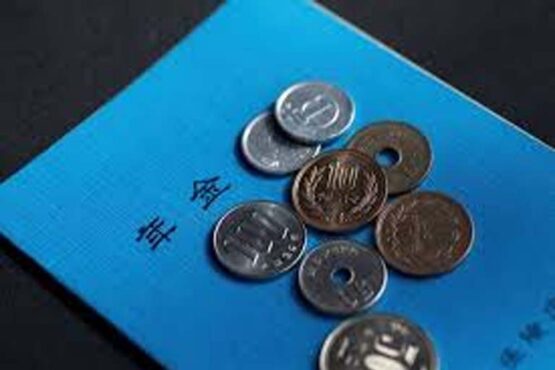Tax-Friendly Retirement in Japan: A Comprehensive Guide for British Expats
Nestled in the heart of Asia, Japan is not only known for its rich culture, stunning landscapes, and technological advancements but also for offering a relatively favorable tax environment for retirees. This guide is tailored to British expats considering Japan as their retirement haven, explaining the nuances of the Japanese tax system and how to best navigate it to ensure a tax-efficient lifestyle post-employment.
The Road to Tax-Efficient Retirement in Japan: Residency Criteria
Before diving into the tax advantages, it is crucial to understand Japan’s residency requirements for retirement. To be considered a tax resident and thus eligible for these benefits, one must spend at least 183 days in Japan during a single tax year. This requirement is essential, as it dictates the scope of taxable income. Additionally, having a significant source of income from Japan, such as pensions, rental income, or dividends, will also play a pivotal role in determining the extent of your tax obligations.
The Intricacies of Japan’s Tax System for Retirees
Income Tax: Like many countries, Japan employs a progressive tax system, meaning that as your income grows, so does the rate at which you are taxed. However, fear not, for Japan also offers a silver lining for retirees. The government recognizes the unique financial situation of individuals in their golden years and provides various tax deductions and exemptions to lighten the burden.
Local Taxes: While national income tax rates are important, it’s also necessary to consider local taxes. In Japan, you may face additional levies such as municipal income tax and property tax, which are assessed by local authorities. These local taxes are calculated based on your annual income and property ownership and can vary from one prefecture to another.
A Closer Look at Tax Deductions and Exemptions
1. Foreign Pension Income: A significant boon for British retirees is that pension income originating from outside Japan is typically exempt from Japanese taxation. This means that the hard-earned savings you’ve brought with you can be enjoyed without the worry of additional taxation in your new home.
2. Foreign Tax Credit: Japan is party to numerous Double Taxation Avoidance Agreements (DTAs), including one with the UK. These agreements are designed to prevent you from being taxed twice on the same income. If you continue to pay taxes on your foreign income in the UK, you may qualify for a foreign tax credit in Japan, which could significantly reduce your Japanese tax liability.
3. Medical Expenses: Japan’s healthcare system is renowned for its quality, and the tax system reflects this by allowing deductions for medical expenses from your taxable income. This can be a substantial saving, especially for those who require regular medical attention or have ongoing health concerns.
4. Social Security Contributions: Payments made towards social security in Japan are also deductible from your taxable income. This is particularly beneficial for those who are actively contributing to Japan’s social security system.
Double Taxation Avoidance Agreements (DTAAs): The Lifeblood of Tax Efficiency
Japan’s extensive network of DTAAs plays a vital role in protecting British expats from the specter of double taxation. The UK-Japan DTAA ensures that you are not taxed twice on the same income, allowing you to claim tax credits or deductions in one country for taxes paid in the other. This can significantly simplify your tax situation and ensure that your retirement income stretches further.
Tips for Maximizing Your Tax Efficiency in Japan
1. Consult a Tax Professional: The Japanese tax system is complex and can be overwhelming. Engaging a tax professional with expertise in both Japanese and British tax laws will help ensure that you are fully compliant and can take advantage of every possible deduction and exemption.
2. Meticulous Record-Keeping: Keep detailed records of all your income, expenses, and tax payments. Accurate record-keeping is not only essential for filing your taxes correctly but also provides a solid foundation if you are ever audited by the tax authorities.
3. Secure a Tax Residency Certificate: Obtaining a tax residency certificate from the UK can serve as proof of your tax status and aid in your quest for a more tax-efficient retirement in Japan. This document can be used to support claims for tax relief under the DTAA.
Embracing the Japanese Retirement Dream
Retiring in Japan presents an exciting opportunity for British expats seeking a tax-friendly environment. By understanding the Japanese tax system and adhering to the outlined strategies, you can enhance your financial well-being and enjoy the peace of mind that comes with a well-managed retirement plan.
From the bustling streets of Tokyo to the serene beauty of Kyoto, Japan offers a variety of lifestyles to suit every taste. With careful planning and a grasp of the local tax laws, you can revel in the charm of the Land of the Rising Sun without letting taxes cast a shadow on your retirement experience.
Related posts:

Ray Brocklesby, the site owner, is a Brit who now lives in the Philippines. He is retired and lives with his wife Weng, Daughter Kristelle, nephews, Harvey and Boknoy, and mother-in-law. Ray also has a son and daughter living in the UK, and a son in New Zealand.













